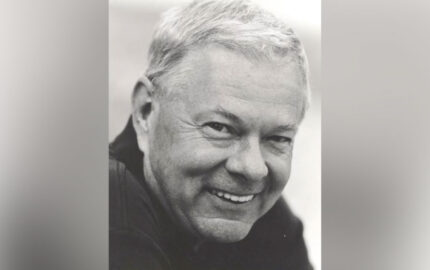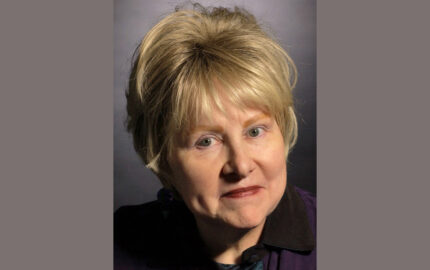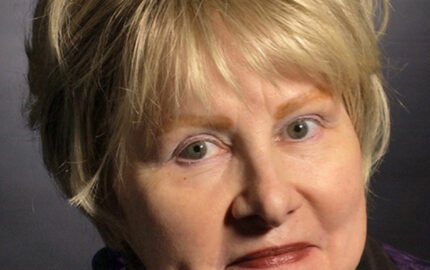EAST CHATHAM, N. Y. – Daniel Rapoport, a longtime Washington journalist who started a publishing house which issued books that likely would never otherwise see print, died of leukemia at his home here April 11. He was 79.
After covering the House of Representatives for United Press International and writing for National Journal and the Washingtonian magazine, Rapoport wrote “Inside the House: An Irreverent Guided Tour through the House of Representatives from the Days of Adam Clayton Powell to Those of Peter Rodino.” It was published in 1975 by Follett Publishing Co. of Chicago.
Irreverent it was. One chapter, “An Anthropologist’s Field Guide,” looked at the House as if it were “a strange and unfamiliar culture.”
The book was a modest success, but the great success in Rapoport’s book career came from a book co-authored by his wife, Maxine Rapoport and issued in 1984 by Farragut Publishing, which he had founded in Washington in 1983.
“The Pasta Salad Book,” written with Nina Graybill, a Washington literary agent, sold more than 100,000 copies, which, as Publishers Weekly noted, was an exceptional number for a small publisher. Its distinctive green wire-bound cover could be seen in many Washington kitchens for years to come.
Together the Graybill and Rapoport team wrote and Farrugut published five more cookbooks.
Rapaport was born in New York City on Jan. 19, 1933, the son of Jewish immigrants from Russia, David and Ida Rapoport. He moved to Washington in 1959 after graduating from the University of Illinois and serving in the U.S. Navy aboard the USS Gwin DM-33.
The Rapoports met in Washington and married in 1964. Maxine Rapoport and their three children, Victoria, Andrew and Adam, survive along with Marlon Rapoport, 4, son of Adam and his wife, Simone Shubuck.
All told, between 1984 and1996, Farragut published or packaged 20 nonfiction titles. Among them: “On This Spot: Pinpointing the Past in Washington, D.C.,” by Washington writer Paul Dickson. It was a Washington Post bestseller for 12 weeks in the spring of 1992; “Grand Allusions: A Lively Guide to Those Terms Expressions and References You Ought to Know But Might Not,” by Elizabeth Webber and Mike Feinsilber, subsequently reissued in 1999 by Merriam-Webster as “Merriam-Webster’s Dictionary of Allusions” and “Medical Cover-ups in the White House” by Edward B. MacMahon and Leonard Curry, about the suppression of information about sick presidents.
Another, “Baseball: The President’s Game” by Dickson and William B. Mead of Bethesda, Md. was a history of the connections between the nation’s presidents and the national pasttime going back to George Washington, who played catch with troops at Valley Forge.
“As a publisher, Dan was willing and able to follow his own instincts and interests,” said Dickson, author of more than 50 nonfiction books. “Farragut was like nothing before or since.”
“He was a natural innovator,” said a Farragut colleague, Merideth Menken. “He offered profit-sharing agreements to Farragut authors and created partnerships with those who needed Farragut’s experience to ‘package’ books under their own imprints, a forerunner of today’s self-publishing movement.”
“He had one of the first stand-up desks (actually bookshelves),” she added, “and adapted quickly as the personal computer made its way into every aspect of business in the 1990s — after a rough start when he waved a mouse into the air to make it work.”
Rapoport had boundless curiosity. He was intrigued about why Jenifer Street in Northwest Washington, where he lived, was among those plowed first after a snowfall. He determined that Dwight Eisenhower’s postmaster general, Arthur Summerfield, had lived there and that the order to give it plowing priority had never been rescinded.
And that, Dickson recalled, led to Rapoport’s intrigue with the politics of plowing and subsequently with whether liberals or conservatives did a better job of clearing their sidewalks.
Rapoport was equally curious about sludge and wrote about it in National Journal. At one point, he became interested in household plumbing and learned enough to give plumbing advice to friends. One, Jennifer Mead, recalls that during a Jennifer Street party he produced a plumbing snake to demonstrate its advantages.
He knew people from every walk of life in Washington, from chairman to charwoman, and talked to them all. “I never went anywhere with him where he didn’t run into a half dozen people he knew,” said 40-year friend John Pekkanen, a fellow Nieman at Harvard. “It sometimes took a half hour to walk a city block because of all the stops we made.”
His interests were widespread — prizefighting, imaginative breakfasts, the inaccuracy of lie detectors, the number of lions said to have been shipped to Rome to engage in Coliseum battles.
“He struggled to find out why the Battle of Hastings was such a big deal,” recalled Menken, his Farragut Publishing colleague. “And when he visited Sussex, he sent a postcard back saying, ‘People here speak of nothing else but the Battle of Hastings.’”
He thought for years about writing a book about the 1950s’ Friday Night Fights, a fixture on NBC. Like many authors, he died with an unfinished book, about the House Un-American Activities Committee.
After his death, Andrew found on his father’s computer a tentative title: “America’s Last and Longest Witch Hunt: The Story of How the House Un-American Activities Committee Created McCarthyism (Before and Without McCarthy), Traumatized a Generation of Liberals, Propelled Richard Nixon to the Presidency and Relentlessly Pursued Communists, Compsymps, Parlor Pinks, Fellow Travelers and Bleeding Hearts Who Bled Red.”
After covering the House of Representatives for United Press International and writing for National Journal and the Washingtonian magazine, Rapoport wrote “Inside the House: An Irreverent Guided Tour through the House of Representatives from the Days of Adam Clayton Powell to Those of Peter Rodino.” It was published in 1975 by Follett Publishing Co. of Chicago.
Irreverent it was. One chapter, “An Anthropologist’s Field Guide,” looked at the House as if it were “a strange and unfamiliar culture.”
The book was a modest success, but the great success in Rapoport’s book career came from a book co-authored by his wife, Maxine Rapoport and issued in 1984 by Farragut Publishing, which he had founded in Washington in 1983.
“The Pasta Salad Book,” written with Nina Graybill, a Washington literary agent, sold more than 100,000 copies, which, as Publishers Weekly noted, was an exceptional number for a small publisher. Its distinctive green wire-bound cover could be seen in many Washington kitchens for years to come.
Together the Graybill and Rapoport team wrote and Farrugut published five more cookbooks.
Rapaport was born in New York City on Jan. 19, 1933, the son of Jewish immigrants from Russia, David and Ida Rapoport. He moved to Washington in 1959 after graduating from the University of Illinois and serving in the U.S. Navy aboard the USS Gwin DM-33.
The Rapoports met in Washington and married in 1964. Maxine Rapoport and their three children, Victoria, Andrew and Adam, survive along with Marlon Rapoport, 4, son of Adam and his wife, Simone Shubuck.
All told, between 1984 and1996, Farragut published or packaged 20 nonfiction titles. Among them: “On This Spot: Pinpointing the Past in Washington, D.C.,” by Washington writer Paul Dickson. It was a Washington Post bestseller for 12 weeks in the spring of 1992; “Grand Allusions: A Lively Guide to Those Terms Expressions and References You Ought to Know But Might Not,” by Elizabeth Webber and Mike Feinsilber, subsequently reissued in 1999 by Merriam-Webster as “Merriam-Webster’s Dictionary of Allusions” and “Medical Cover-ups in the White House” by Edward B. MacMahon and Leonard Curry, about the suppression of information about sick presidents.
Another, “Baseball: The President’s Game” by Dickson and William B. Mead of Bethesda, Md. was a history of the connections between the nation’s presidents and the national pasttime going back to George Washington, who played catch with troops at Valley Forge.
“As a publisher, Dan was willing and able to follow his own instincts and interests,” said Dickson, author of more than 50 nonfiction books. “Farragut was like nothing before or since.”
“He was a natural innovator,” said a Farragut colleague, Merideth Menken. “He offered profit-sharing agreements to Farragut authors and created partnerships with those who needed Farragut’s experience to ‘package’ books under their own imprints, a forerunner of today’s self-publishing movement.”
“He had one of the first stand-up desks (actually bookshelves),” she added, “and adapted quickly as the personal computer made its way into every aspect of business in the 1990s — after a rough start when he waved a mouse into the air to make it work.”
Rapoport had boundless curiosity. He was intrigued about why Jenifer Street in Northwest Washington, where he lived, was among those plowed first after a snowfall. He determined that Dwight Eisenhower’s postmaster general, Arthur Summerfield, had lived there and that the order to give it plowing priority had never been rescinded.
And that, Dickson recalled, led to Rapoport’s intrigue with the politics of plowing and subsequently with whether liberals or conservatives did a better job of clearing their sidewalks.
Rapoport was equally curious about sludge and wrote about it in National Journal. At one point, he became interested in household plumbing and learned enough to give plumbing advice to friends. One, Jennifer Mead, recalls that during a Jennifer Street party he produced a plumbing snake to demonstrate its advantages.
He knew people from every walk of life in Washington, from chairman to charwoman, and talked to them all. “I never went anywhere with him where he didn’t run into a half dozen people he knew,” said 40-year friend John Pekkanen, a fellow Nieman at Harvard. “It sometimes took a half hour to walk a city block because of all the stops we made.”
His interests were widespread — prizefighting, imaginative breakfasts, the inaccuracy of lie detectors, the number of lions said to have been shipped to Rome to engage in Coliseum battles.
“He struggled to find out why the Battle of Hastings was such a big deal,” recalled Menken, his Farragut Publishing colleague. “And when he visited Sussex, he sent a postcard back saying, ‘People here speak of nothing else but the Battle of Hastings.’”
He thought for years about writing a book about the 1950s’ Friday Night Fights, a fixture on NBC. Like many authors, he died with an unfinished book, about the House Un-American Activities Committee.
After his death, Andrew found on his father’s computer a tentative title: “America’s Last and Longest Witch Hunt: The Story of How the House Un-American Activities Committee Created McCarthyism (Before and Without McCarthy), Traumatized a Generation of Liberals, Propelled Richard Nixon to the Presidency and Relentlessly Pursued Communists, Compsymps, Parlor Pinks, Fellow Travelers and Bleeding Hearts Who Bled Red.”


